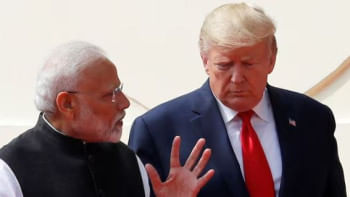Yaba ingredient to be banned
Bangladesh is to ban the import of the cold-medicine component pseudoephedrine, a key ingredient in illicit methamphetamine production, anti-narcotics officials said, after purchases spiked in tandem with a boom in the illegal drug "yaba".
The soaring popularity of yaba, a mix of methamphetamine and caffeine usually consumed in pill form, is rattling governments across Asia, with annual sales in Bangladesh alone estimated at $3 billion.
Bangladesh consumes around 2 million yaba pills a day, most of it made in labs in the lawless border regions of Myanmar, according to national and transnational anti-drugs officials.
The ban on pseudoephedrine imports was approved late last month and will be announced soon, according to three officials at the Department of Narcotics Control (DNC) in Dhaka. It was aimed at choking off supplies for domestic yaba production before it becomes too established, they said.
"With this decision, no neighbouring country, including Myanmar, can say that Bangladesh is a hub for producing yaba," said Nazrul Islam Sikder, a senior DNC official.
Pseudoephedrine is a decongestant used in popular over-the-counter cold remedies. But it can also be used as a so-called precursor in methamphetamine production, prompting governments around the world to impose new controls on the drug in recent years with some, such as Mexico, banning imports altogether.
Bangladesh's annual pseudoephedrine imports have jumped more than six times to around 20 tonnes from five years ago, according to the minutes of a December government meeting on the issue seen by Reuters.
A 2014 report by the US Department of State identified Bangladesh as a source and transit point for the chemical diverted to make the drug methamphetamine elsewhere.
Another senior DNC official denied any international pressure behind the latest ban. He requested anonymity.
YABA CRACKDOWN
Bangladesh has legally sourced pseudoephedrine from countries such as Brazil, Italy, India, China and Singapore for the manufacture of around eight types of cold pills, mostly by local companies.
The local unit of GlaxoSmithKline said it stopped making or selling any medicine containing pseudoephedrine in 2010, describing the move as a "decision taken by business at that time". The company said it had not received any formal communication on the ban of pseudoephedrine from the Bangladesh government.
One kg of pseudoephedrine, costing up to $67, can be used to make as much as 400,000 yaba pills worth around $626,000.
"This has encouraged many pharmaceutical companies into misusing pseudoephedrine," DNC's Chief Chemical Examiner, Dulal Krishna Saha, told the meeting, without naming any firm.
The DNC sources also declined to identify any company diverting pseudoephedrine into illicit channels.
The ban was unlikely to cause any shortage of cold medicine in Bangladesh because alternatives were available, said Golam Kibria, director of Bangladesh's drug regulatory authority.
Anti-narcotics officials in Myanmar say large quantities of pseudoephedrine produced in India's huge and ill-regulated pharmaceutical sector are smuggled into the country to make yaba, and DNC officers in Bangladesh, which also borders India, and international experts acknowledged there was a risk of a similar smuggling trade developing.
"Controls can work done right, but at the same time bans can sometimes create lucrative black markets," said Jeremy Douglas, regional representative of the United Nations Office on Drugs and Crime.
"We often see smugglers and traffickers address demand for banned substances. Organised criminals watch markets very effectively and they will not hesitate if there is money to be made."
Apart from the ban, Bangladesh has also prepared a secret list of around 100 people driving yaba trafficking in the country, according to two DNC officials. Some of them have already been caught, police officials said.
Prime Minister Sheikh Hasina has personally monitored the campaign against
yaba, and her political adviser told Reuters last month that the influx of Rohingya Muslim refugees from neighbouring Myanmar was worsening the drug problem.
The stateless refugees, who can't easily be traced, are the preferred carriers of yaba, police officials said.
Bangladesh narcotics officials plan to visit Myanmar this month to discuss curbing the flow of yaba.

 For all latest news, follow The Daily Star's Google News channel.
For all latest news, follow The Daily Star's Google News channel. 



Comments